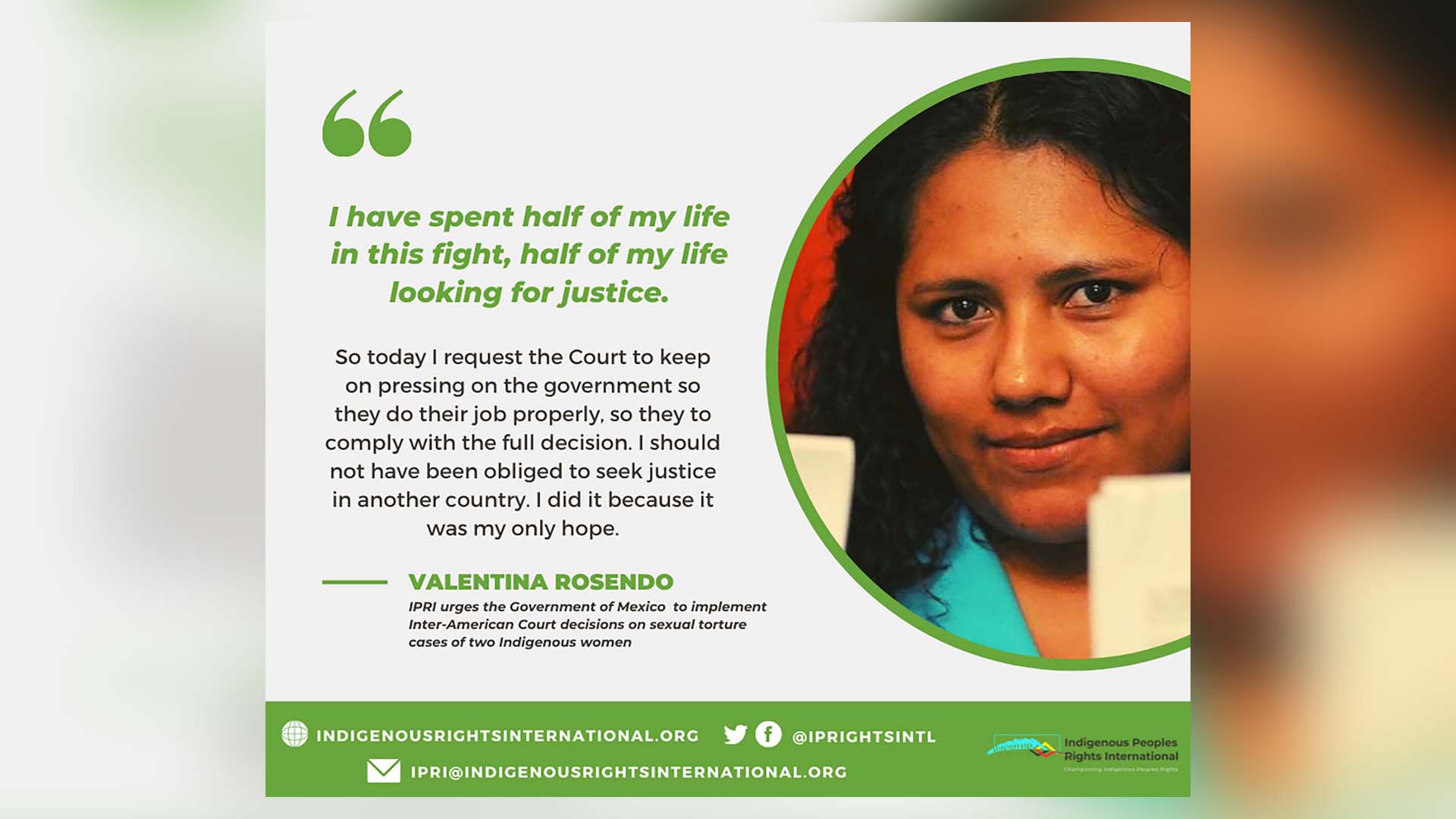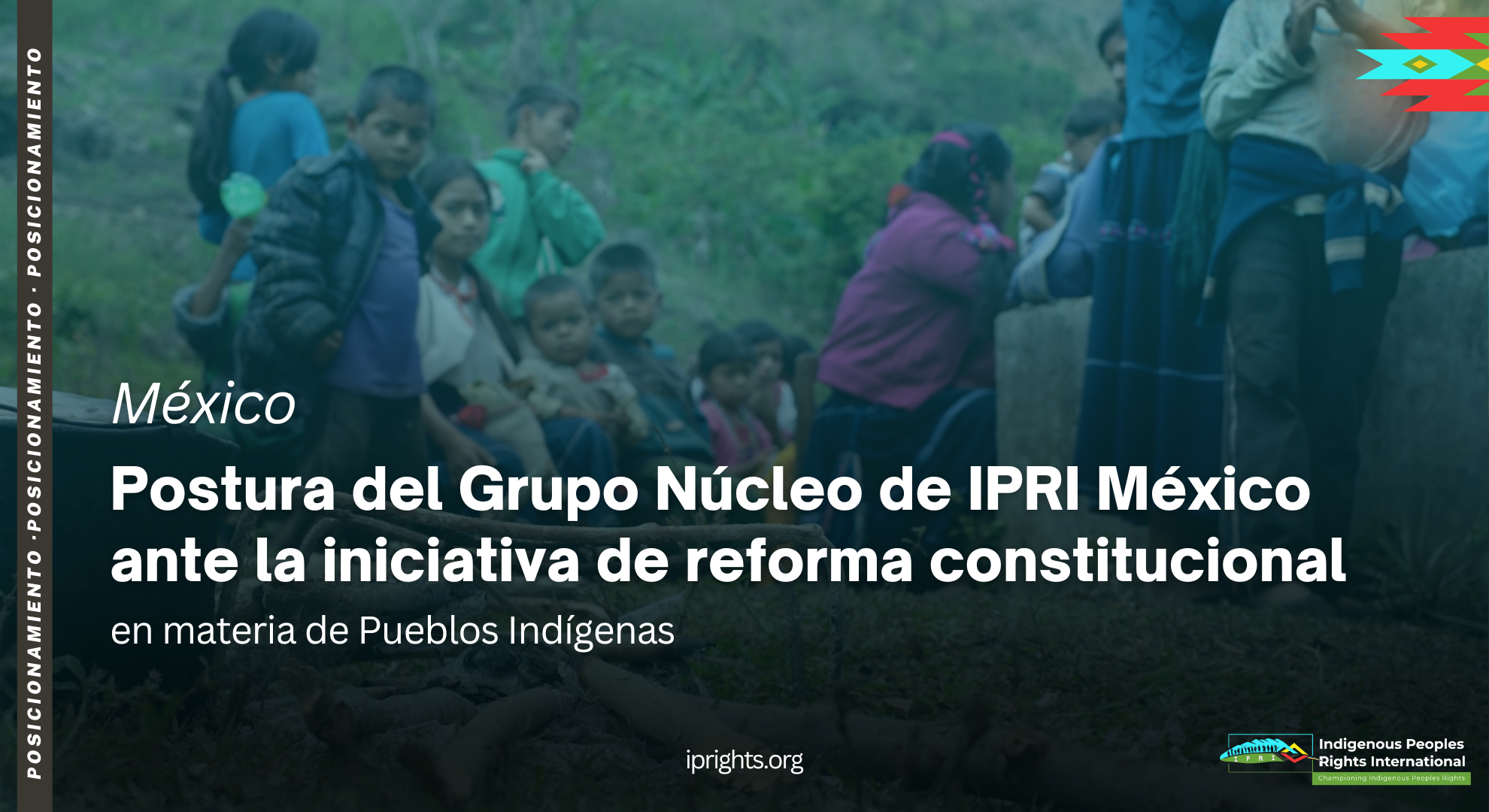Global indigenous organization Indigenous Peoples Rights International (IPRI), together with Centro de Derechos Humanos de la Montaña de Guerrero Tlachinollan, strongly urge the Mexican Government to fully comply the Court decisions on the cases of Ines Fernandez Ortega and Valentina Rosendo Cantù, two indigenous Me’phaa women who were sexually tortured by Mexican soldiers in 2002 in the state of Guerrero, Mexico.
Despite the seemingly lack of interest of the Mexican government to fully implement the court decision, Inés and Valentina have remained undaunted in their fight for justice.
“I have spent half of my life in this fight, half of my life looking for justice. I had to leave Mexico to look for justice in another country, because here they did not believe me. I was not believed until I reached the [Inter-American] Court. After many years of struggle, the State is not complying yet,”
“So today I request the Court to keep on pressing on the government so they do their job properly, so they to comply with the full decision. I should not have been obliged to seek justice in another country. I did it because it was my only hope. If my case had not reached the Court, my aggressors would still be free,” Valentina Rosendo said.
It has been a decade since the Inter-American Court of Human Rights, based in Costa Rica, first issued two judgments against Mexico that ordered a full investigation to the cases by civilian authorities and reforms to the military justice system and several public policies to address gender violence.
In August 2010, the Court determined that the rights of both women to a life free from violence; to protection of human dignity and private life; to due process and judicial guarantees were violated. The Inter-American Court decisions ordered individual, community and structural reparation measures in order to prevent similar abuses against other women in the future.
The reparation measures included effective investigations under the ordinary jurisdiction, which leads to sanctions those who are responsible; public recognition of international responsibility of the State; the creation of a community center for indigenous women in Ayutla municipality; law reforms on those that privilege impunity of human rights violations under military jurisdiction; compensations; guaranteed access to education and health to the victims, among other.
The IA Court also decided that Mexico failed to comply with its international obligation to harmonize its military justice framework with international standards, based on international human rights treaties. Mexico has signed and ratified most of the fundamental international human rights treaties. It has also ratified ILO Convention 169, and had a leading role in the adoption of the UN Declaration on the Rights of Indigenous Peoples (UNDRIP).
“Justice for Ines Fernandez Ortega and Valentina Rosendo Cantu is long overdue. Further, the reforms needed to prevent more cases of violence against indigenous women by state forces are urgently needed as a key step in addressing impunity,” says IPRI Co-director Joan Carling.
“It has been 18 years since the heinous crimes were committed against Inés and Valentina, yet justice has remained elusive. The global Indigenous Peoples movement is determined to continue the fight with the victims until all involved parties are held accountable for the crimes they committed,” Carling adds.
IPRI, together with Centro de Derechos Humanos de la Montaña de Guerrero Tlachinollan, launch a sign on petition that expresses solidarity to the continued fight of Inés and Valentina, and demands the full implementation of the Court decision, including the structural and community reparation measures ordered by the Court.
The sign-on petition may be accessed here: http://bit.ly/IPRI-Petition-Mexico





